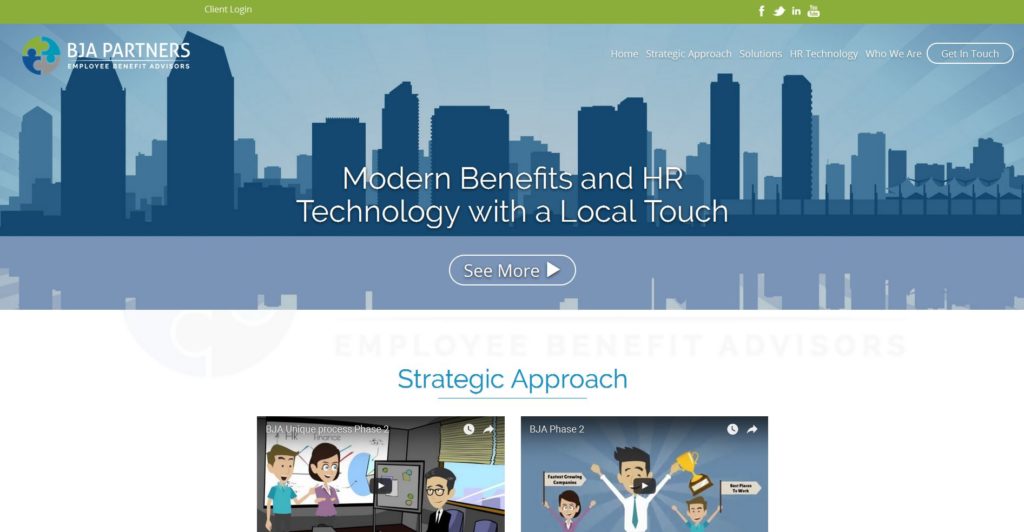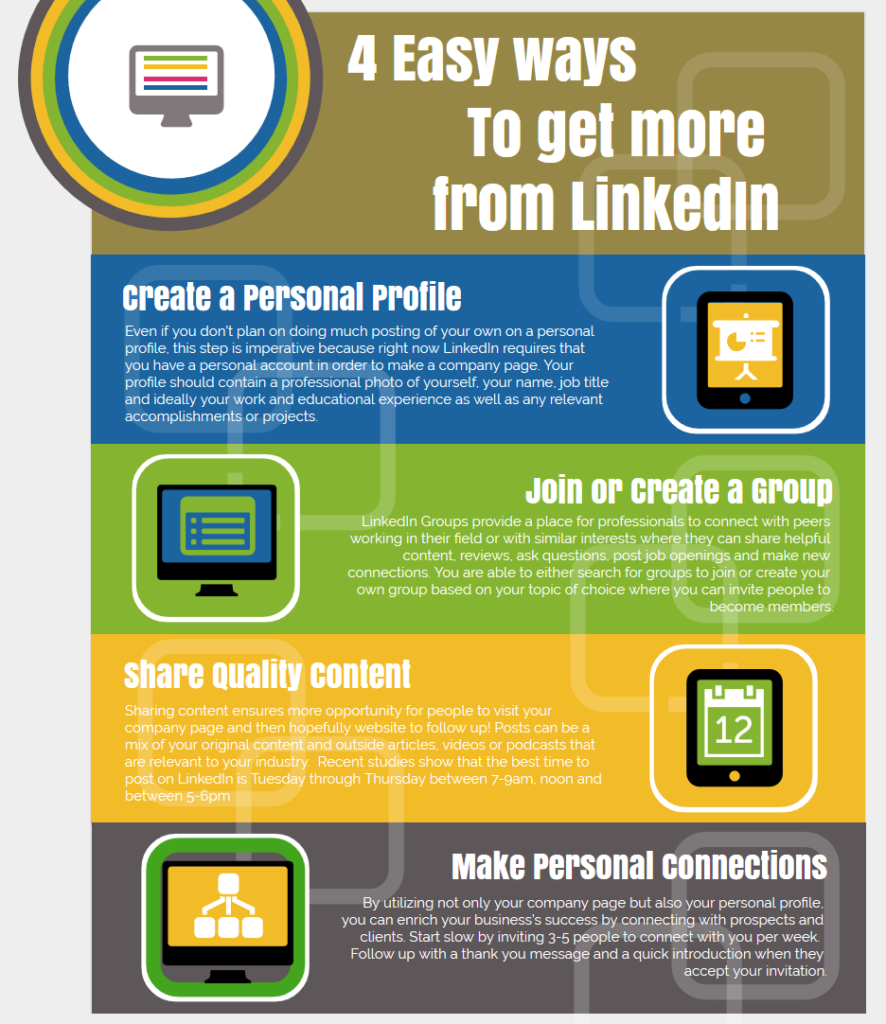There’s no doubt that original content boosts your search engine rankings, establishes credibility as an industry expert, and generates interest in your services. Yet many benefit agencies struggle to produce timely, quality content simply because they don’t have the bandwidth to get it done. At eTekhnos we offer customized social media marketing plans to fit your agency. Along with curated relevant content on compliance issues and top HR and benefit trends, we prioritize creating custom pieces on the latest hot topics! Here’s a sample blog article we recently produced for our clients on the rising 2017 benefit trend of paid parental leave:
 How Paid Parental Leave is Changing the Benefits Landscape
How Paid Parental Leave is Changing the Benefits Landscape
When you hear the term “paid parental leave”, what do you think of? Here in the U.S., paid leave benefits are somewhat of a luxury. Although the Family and Medical Leave Act (FMLA) has made it possible for parents working at companies with 50 or more employees to secure 12 weeks of unpaid leave, the U.S. is one of only three countries on a list of 185 that does not mandate a period of paid parental leave. This leaves the country ranked below Iran and Mexico, who both offer 12 weeks of paid parental leave. On the other end of the spectrum, employees in the UK benefit from up to 40 weeks of paid leave.
As a result of having no mandated paid parental leave policy, approximately a quarter of U.S. women who become pregnant while employed quit their jobs upon giving birth, one third of women are forced to borrow money or withdraw from savings to cover time off from work, and 15% utilize public assistance. The June 2015 Enforcement Guidance on Pregnancy Discrimination from the Equal Employment Opportunity Commission (EEOC) was the first legislation to make a case for offering equal parental leave to mothers and fathers, setting a new precedent for the evolution of the paid leave benefit.
Why Should You Offer Paid Parental Leave to Employees?
The EY & Peterson Institute for International Economics recently released a study revealing that 38% of millennials would move to a new country if they would be afforded better paid parental leave benefits. Millennials now make up the largest demographic in the American workforce, and companies will need to increasingly take statistics like this into account when building benefit plans that will attract and retain top talent.
Aside from talent acquisition, the study goes on to show the positive impacts a paid parental leave benefit can have on keeping women in the C-Suite, as men who would usually be considered secondary caregivers take advantage of the time off and allow women to get back to work more quickly. In addition, change.org, who has implemented a generous paid parental leave policy, observed that dads who took leave in their company encouraged other new fathers to take advantage of the benefits as well, creating a culture of safety in which to utilize leave and invest more fully in their family life.
Ultimately, employees are happier and are empowered to do better work when they are allowed to honor their priorities. Whether this means a new mother is allowed to take stress-free, paid time off to bond with her child, or a father takes advantage of leave to be with his family or allow his partner to return to work, the ability to balance work and life is of the utmost importance to younger generations.
Case Studies – Top Companies Doing it Right
American Express
American Express recently announced that they were changing their paid parental leave policy from three months for primary caregivers and two weeks for secondary caregivers to five months of paid parental leave for all full-time and part-time employees.
All genders are eligible for the benefit, and employees may become parents via birth, adoption or surrogacy. In addition, American Express offers up to $35,000 for adoption or surrogacy fees with a limit of two events. A lifetime maximum of $35,000 is also allotted for fertility treatments.
The company also announced a unique supplemental benefit of 24-hour lactation consultants available to nursing mothers, and a breast milk shipment program available to mothers traveling for business who need to send milk home.
Bank of America
Bank of America offers 16 weeks of paid leave for biological and adoptive parents. A unique feature of their policy allows parents to take leave any time during the first year of the child’s life, enabling partners to take overlapping or subsequent time off, whichever best fits their family’s needs. The company values providing this option, as they see almost half of parents in today’s society raising their kids together at home while both holding jobs.
The banking giant also tries to make life after baby easier for working parents by offering a more flexible work-from-home program and providing $240 in monthly childcare reimbursement for employees whose household income comes in under $100,000 annually.
Netflix
Netflix took the spotlight when it comes to paid parental leave benefits when they announced that the company would offer unlimited paid leave with no loss of benefits during the first year after a child’s arrival. Leave can be taken at any time during the year, and employees may choose to work part-time, or come back to work and then leave again if desired.
Netflix chief talent officer, Tawni Cranz, said of the monumental decision, “Experience shows people perform better at work when they’re not worrying about home.”
While Twitter offers 20 weeks of paid leave for mothers and 10 for fathers and adoptive parents, the most innovative benefits this company offers come through its pre and post-natal programs for parents. Twitter offers quarterly “New Moms and Moms-To-Be” roundtables, a Mommy Mentor Program, Working Mom lunches and most lately, “Dads on Leave” roundtables. In-house support for employees when it comes to family life provides a safe place to embrace new roles as parents while still progressing in their careers.
How Can You Adopt This Benefit?
Job participation by women in peak years is declining, and paid parental leave is a way to help remove barriers in the workplace that leave women in only 5% of CEO positions at Fortune 500 companies. Karyn Twaronite, EY global diversity and inclusiveness officer, said, “Companies that view parental leave as something solely for mothers are becoming extinct, as more modern and enlightened companies are realizing that many people, especially millennials, are even more interested in co-parenting given most are part of dual career couples.”
If your company is unable to keep up with the generous paid leave packages larger businesses can afford, consider taking a page out of Twitter’s book and offering mentoring programs and support groups for new parents. Budget for childcare reimbursement costs like Bank of America. Even smaller changes that are made thoughtfully, with the employee in mind, will increase the appeal of your benefits package.
As the benefits landscape changes with shifting demographics, consider carefully how offering paid parental leave could positively impact your employees, and ultimately, your bottom line as workers are motivated to work harder and smarter, knowing things are taken care of at home.
By Kate McGaughey – Social Media Director, eTekhnos




